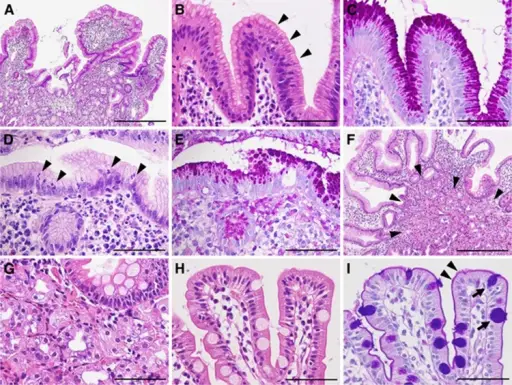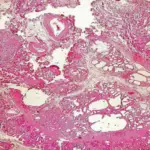Stomach metaplasia is a precancerous change of the mucosa of the stomach and is associated with an increased risk of dysplasia and cancer.
What is the Pathology of Stomach Metaplasia?
The pathology of stomach metaplasia is:
-Etiology: The cause of stomach metaplasia is helicobacter pylori infection, high salt intake, smoking, alcohol consumption, and chronic bile reflux.
-Genes involved: RUNX3.
-Pathogenesis: The sequence of events that lead to stomach metaplasia are a pre-neoplastic lesion that usually follows Helicobacter pylori infection and that confers increased risk for gastric cancer development. After setting the role played by CDX2 caudal-type homeobox 2 in the establishment of gastric IM, it became of foremost importance to unravel the regulatory mechanisms behind its de novo expression in the stomach.
-Histology: The histology associated with stomach metaplasia shows differentiated epithelium.
How does Stomach Metaplasia Present?
Patients with stomach metaplasia typically are both male or female at any age. The symptoms, features, and clinical findings associated with stomach metaplasia include upper abdominal pain, indigestion, bloating, nausea, and vomiting.
How is Stomach Metaplasia Diagnosed?
Stomach metaplasia is diagnosed by endoscopy with biopsy.
How is Stomach Metaplasia Treated?
Stomach metaplasia is treated by removing the H. pylori infection completely, and using antioxidant agents.
What is the Prognosis of Stomach Metaplasia?
The prognosis of stomach metaplasia is good. Metaplasia is defined as a potentially reversible change from a fully differentiated cell type to another.



